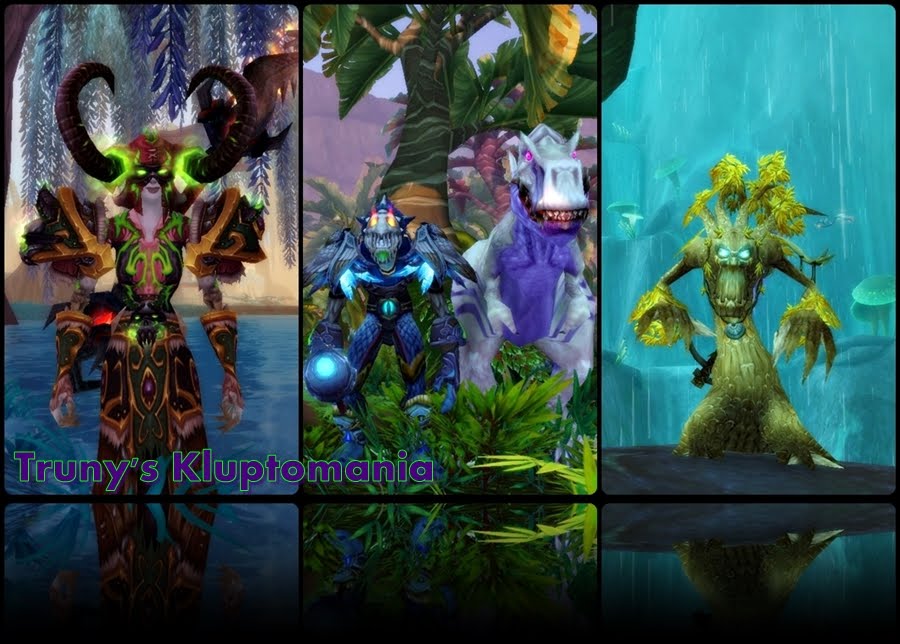Is this even a contentious issue? No, because it has never really BEEN a major issue. Has it always been quietly on the sidelines, trying to dig into the core issues that players tend to rant/complain/report about? Hell yes.
The reason why regardless of your role in a gaming company be it the CFO, chief programmer, janitor, food supplier, contractor, everyone must be "with it" for whatever your gaming mission and vision is. This is where I love using the word "immersion" and getting people talking. Who DOESN'T want their players to be immersed in their game?
Ahh that is the golden question. I commend you my single reader for following me for so long *digital tree-branch druid high-five*. What we saw in WoD is what broke this rule, and why there has been an increase of discussion towards the mobile gaming market in my humble old blog. They are all related. Sort of.
Let's look at mobile games. Low development cost, but with the right setup, massive massive potential for immense profitability. Massive margins. Look at Candy Crush, they were making $300,000 a day? Now before you put on your judgmental glasses, that is totally fine. There is only so much "immersion" you can expect out of a mobile game, but it can be designed so that you never ever break this very important rule.
We can summarize that most mobile games try to churn out low development content to fish for the highest possible returns over time. Sometimes what they offer hit gold or become niche/clique eg Flappy Bird type games, Angry Bird where you can build a brand on top of it, etc etc.
Regardless, in the time that players are immersed, most mobile games don't break the golden rule. The ones that do tend to fail or stagnate.
We can skirt about this rule, but if your game is strong enough then players won't care. They'll find ways around it.
What exactly is this strange rule?
The answer: Players should never question your business decisions.
Now, business decisions differ from what we see as business model. A game may be set-up as a pay-to-get-ahead model, but players will adjust. WoW may be slowly shifting from an MMO with an in-game store type model. That is fine.
It's the business decisions where it gets dirty.
When players question your model, they visualize a model usually with charts and graphs and there are expectations and preconceptions and that's it. They go back to the game.
When we start questioning your business decisions, how you handle PR, what you are doing with your designers, why certain decisions were made, we start digging deeper in our visualizing. We picture your office, we start seeking out a target. Who made that decision, and why? The players are now TOO close to us. Get them back into the game, and out of our offices in their heads.
Uh oh immersion's coming back. When you completely break any sense of game immersion with questionable actions, the players have nothing to hang onto in game and we start seeking. Once we're in, you're going to need a lot to get us back out. We no longer see a game as just a game, but a product from a company who makes questionable decisions.
Tough decisions need to be made I agree but what I am trying to say is COVER YOUR ASSES. Make that link, get your decision makers to understand the implications of how they are affecting immersion. Have a back-up plan to keep us out of our own heads.
That is enough with free advice for one day, get the hell out of my office.
Turny the Angry Tree

0 comments:
Post a Comment